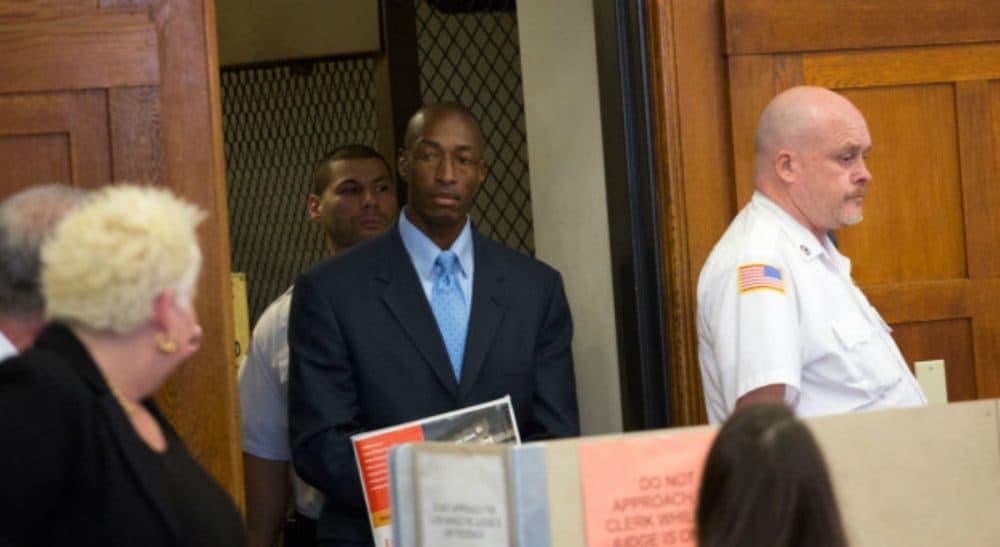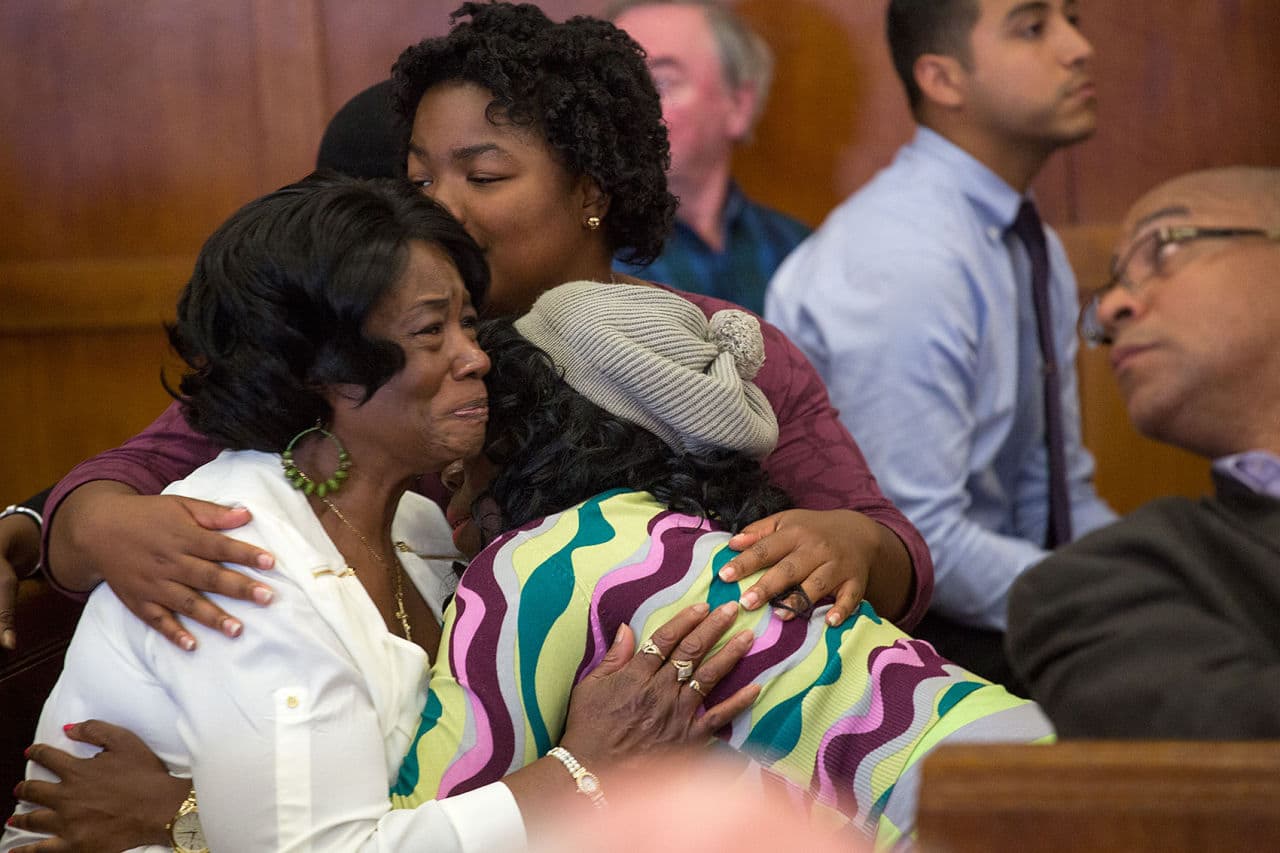Advertisement
Sean Ellis Deserves A Chance At Real Justice

Sometimes, the criminal justice system finally gets it right. Even for a black man. Even in Boston. Sometimes, it takes a team of women to get it done.
When Sean K. Ellis walks free on bail for the murder of a corrupt Boston police detective that he has insisted through three trials and 21 years in prison he did not commit, he will have three righteous women to thank.
Suffolk Superior Court Judge Carol Ball granted Ellis’ motion for bail as well for a new trial in the slaying of Detective John Mulligan after a blistering decision excoriating the prosecution for withholding evidence of police misconduct from the defense for decades.
Sometimes, the criminal justice system finally gets it right. Even for a black man. Even in Boston.
That evidence, implicating dirty cops in the framing of Ellis, would never have come to light without Rosemary Scapicchio, the relentless defense lawyer who in 2003 convinced another judge to vacate the conviction of Shawn Drumgold for the murder of Darlene Tiffany Moore, a 12-year-old girl caught in crossfire as she sat on a mailbox in Roxbury on a hot August night in 1989. Last year, Scapicchio won Drumgold a $5 million civil settlement from the city for the 14 years he spent wrongfully imprisoned.
Ellis, now 40, has spent more than half his life behind bars for Mulligan’s death but it is Elaine Murphy’s memory of the 8-year-old METCO student who played with her son in their Needham backyard that has inspired her to work for his release for the last two decades. “One essential truth moved me to action,” she writes on the website she created to track developments in his case. “Having learned of Sean's conviction and his protestations of innocence, I could never go back to not knowing.”
What she, and the rest of us, now know is that there are alternative theories to the execution-style shooting of Mulligan in the early morning of Sept. 26, 1993, than the circumstantial case that sent Ellis to prison after two mistrials and a third retrial. The 52-year-old detective was shot five times in the face while he slept in his car during a paid detail outside a Walgreens pharmacy on American Legion Highway in Roslindale. The prosecution argued that Ellis and an accomplice killed Mulligan to steal his service revolver as a street “trophy.” The defense argued that Ellis had been in the drugstore buying diapers at the time of the shooting. He produced the receipt.

In her motion for a new trial, Scapicchio noted that evidence withheld from the defense linked Mulligan to a scheme in which several Boston cops, himself included, supplemented their incomes by ripping off neighborhood drug dealers. Two of those dirty cops, Walter F. Robinson and Kenneth Acerra, were assigned to investigate Mulligan’s murder. Both were convicted in 1999 on federal corruption charges for stealing cash, drugs and guns and for fixing criminal cases in exchange for payoffs.
Last year, both cited their Fifth Amendment right against self-incrimination and refused to testify at Ellis’ hearing for a new trial.
“From the beginning of the investigation, the apparent criminal misconduct of Detectives Acerra, Robinson, Brazil, and Mulligan gave the surviving partners a motive to cover up any evidence of their own crimes and to contribute to a quick arrest and conclusion to the investigation so that it did not turn in their direction,’’ Ball wrote in her decision granting Ellis a new trial. “Defense counsel should have had the opportunity to make that argument to the jury.’’ (Former Detective John Brazil was granted immunity from prosecution in exchange for his testimony against on his colleagues.)
...there are alternative theories to the execution-style shooting of Mulligan in the early morning of Sept. 26, 1993, than the circumstantial case that sent Ellis to prison after two mistrials and a third retrial.
Boston was a different city when Ellis was arrested. Drug violence was rampant in the city’s housing projects. Drive-by shootings between rival gangs were commonplace. The deaths of innocent young people caught in the crossfire led to tough new sanctions against juvenile offenders, automatically transferring children as young as 14 to adult court for trial. After the Mulligan shooting, a big city columnist could, under the headline: “Where beasts prowl the streets,” lionize the dead cop and muse without fear of protest about “predators” and “animals” like Sean Ellis who he described as a “plague” destroying inner city neighborhoods.
Such hysteria fueled demands for quick arrests and too many miscarriages of justice in Boston’s black community. Just as Sean Drumgold was exonerated in the killing of Tiffany Moore, Donnell Johnson was released from prison after serving five years for the shooting death of 9-year-old Jermaine Goffigan on Halloween night in 1994 after officials conceded he had been wrongly convicted on tainted eyewitness identifications.
Now comes Sean Ellis, 20 plus years after a corrupt system railroaded him into a prison cell, asking for no more than a fair trial. That cannot be too much to ask. Even for a black man. Even in Boston.
